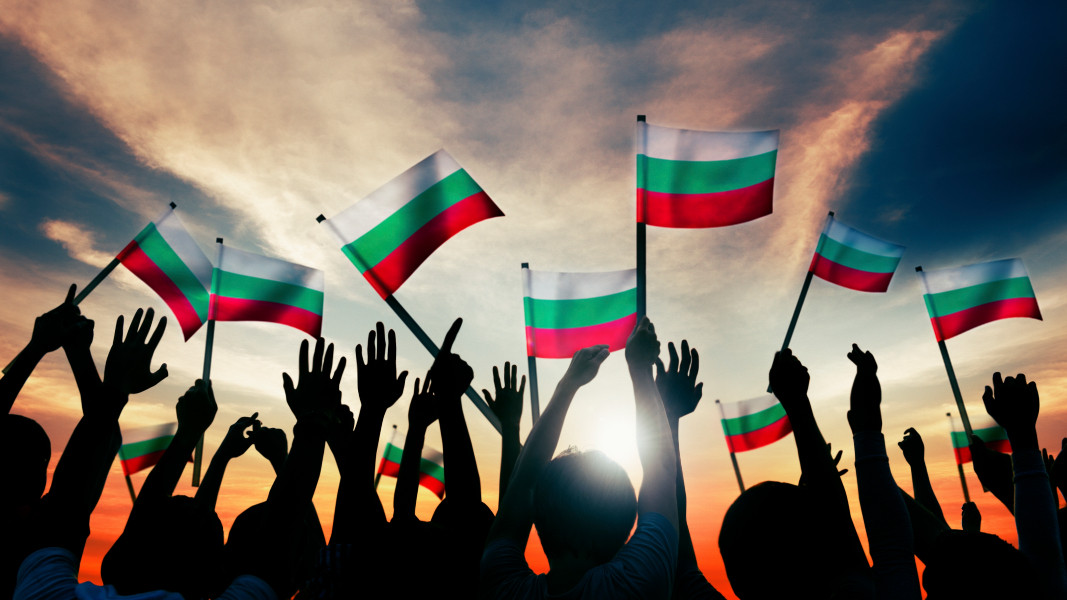The day Bulgaria declared its independence, September 22, with the manifesto of the Bulgarian Prince Ferdinand, put an end to the last vassal ties with the Ottoman Empire. The Principality of Bulgaria became an independent kingdom, headed by the already crowned King Ferdinand.
The year and date of the declaration of independence of the young Bulgarian state were not accidental.
Bulgarian diplomacy at that time reported a favourable international situation, and the Bulgarian prince met in Vienna personally with Emperor Franz-Josef and asked for support from Austria-Hungary - one of the Great Powers that imposed the Treaty of Berlin.
The independence of Bulgaria was announced by the prince in the old capital Veliko Tarnovo, as a sign of continuity and respect for the capital of the Second Bulgarian Kingdom. But independence does not come only with the pronouncement of a memorable royal manifesto, from here on follows the difficult path for the international recognition of this aspiration for state independence.
Turkey insisted that Bulgaria pay a tax because of this violation of the Berlin Treaty, but the Prime Minister, Alexander Malinov, refused and stated that independence cannot be bought. The Bulgarian army was placed in partial mobilization. The Russian Empire at this moment did not want a military conflict in the Balkans and undertook to mediate in the negotiations. It agreed to forgive the debt of the Ottoman Empire, left over from the war of 1877-78. For its part, Turkey refused to demand compensation from Bulgaria, recognizing its independence.
Today, we often associate Independence Day with the victory of Bulgarian diplomacy, as the historian Irina Boteva from the town of Panagyurishte convinces us:
"The date September 22 is very important, because for almost all the events until then /without the Unification/ in one way or another we expected help from the Great Powers. We have always depended on what these Great Powers would have to do with our desire for freedom. If we exclude our fall under Ottoman rule, there is hardly a more tragic moment than the signing of the Treaty of Berlin, and after that we remain waiting for the "blessing" of some big country. And this act, which was carried out on September 22, 1908, led by Alexander Malinov, as prime minister and King Ferdinand, is proof that this country must be independent and has the strength to prove itself to the international community and to assert that independence”.

Today, 114 years later, September 22 continues to evoke feelings of pride and gratitude among Bulgarians. For example, for history student Tsvyatko Tsvetkov, Independence Day is just as important as March 3 - the Day of Bulgaria’s Liberation from the five centuries of Ottoman Domination:
"This is an important day because we are now independent from the Ottoman Empire and we can trade with other European countries and peoples, and this holiday shows that we are now independent and do not need the support of stronger countries. And to be independent means not to be subservient and to be free in your actions".
In a poll conducted by Radio Bulgaria about whether we know how to defend our independence today, Temenuga Zlateva from Sofia admits that modern man is increasingly dependent on new and new factors:
"However open the world may be and we can travel everywhere, the media, the various institutions, the global crisis, and now the gas crisis, are stealing from our freedom and independence. But each of us can try to be independent, treat our loved ones with respect and love, and there, in the family, among friends, one can enjoy personal freedom and independence".
"Today we depend mainly on the state policy and the financial situation of the country, in general on the governance of the country,” is the opinion of Evelina Petrova from Sofia.
"Nothing has changed for us over the years, but the Bulgarian people are tough, they have always persevered and found a way out of any crisis. This is what we Bulgarians are known for, that no matter how hard times we have had, we have mobilized ourselves and have still survived. In addition, a strong faith in God has sustained us through the centuries of slavery, we have preserved our values, and hence we have preserved ourselves as a people".
English version Rositsa Petkova
Photos: BGNES, rawpixelThe prices of Easter goods are rising The Easter meal in the Balkan countries will be more expensive this year, BTA reports. Lamb in Serbia costs about 1,400 dinars (EUR 11.5) per kilogram in supermarkets. On Good Friday, fish..
Residents and visitors to Sofia will have the opportunity to learn more about Bulgarian scientists working in Antarctica and their important role in the exploration of the continent. The exhibition "Antarctic People - Caring for the Earth" by BNR..
Looking and feeling your best doesn’t have to come at a high price — especially in Bulgaria. The country has become a rising star in beauty tourism, offering top-tier salon services at prices that won’t break the bank. Whether you’re a local or a..
Looking and feeling your best doesn’t have to come at a high price — especially in Bulgaria. The country has become a rising star in beauty tourism,..
Residents and visitors to Sofia will have the opportunity to learn more about Bulgarian scientists working in Antarctica and their important role in the..
The prices of Easter goods are rising The Easter meal in the Balkan countries will be more expensive this year, BTA reports...

+359 2 9336 661
